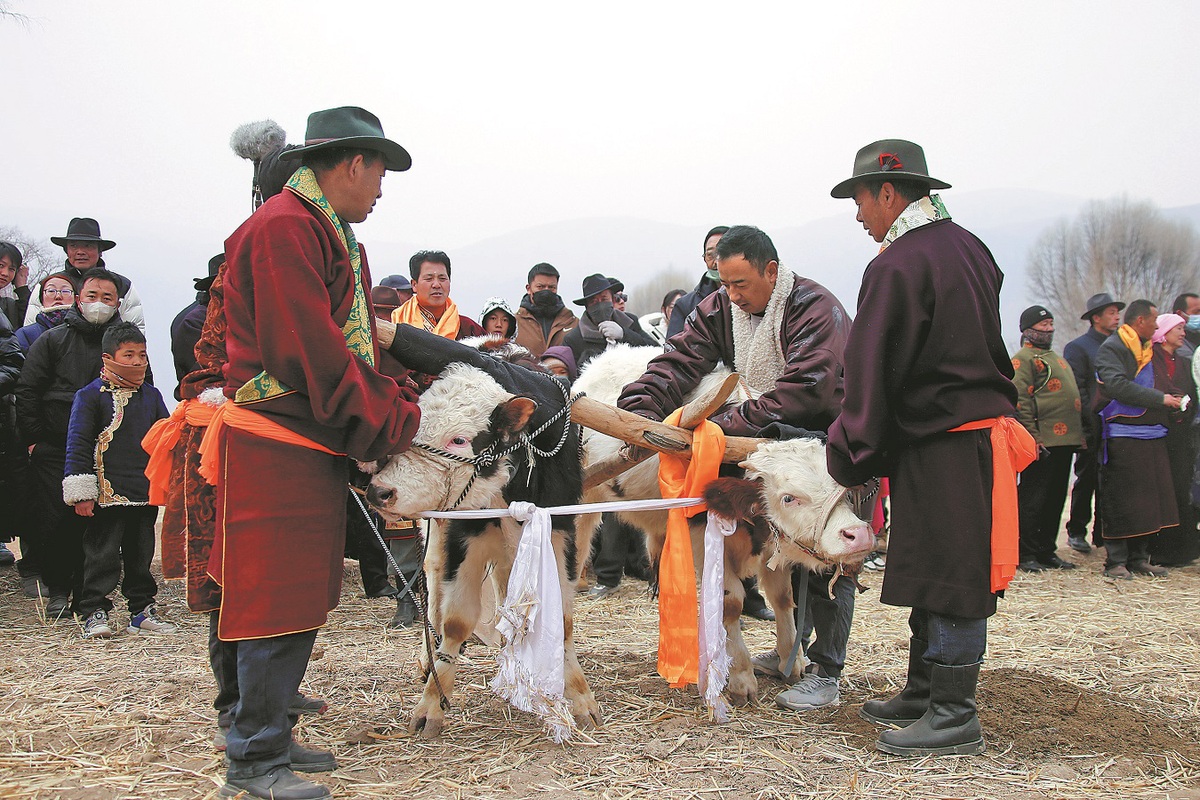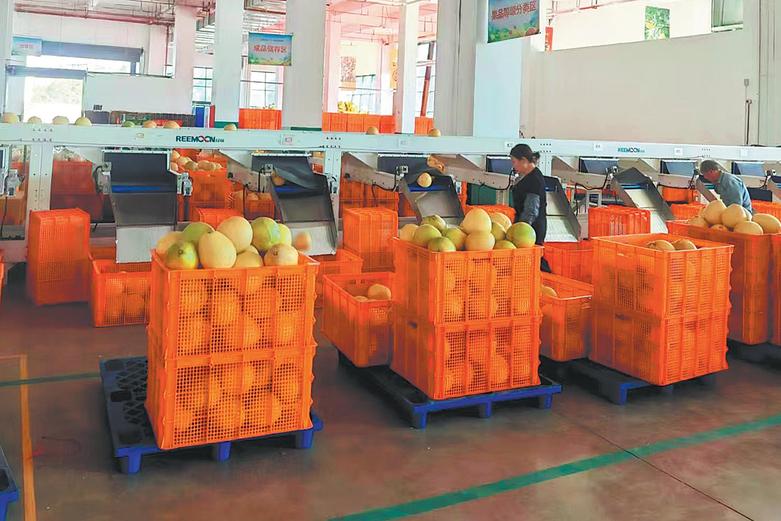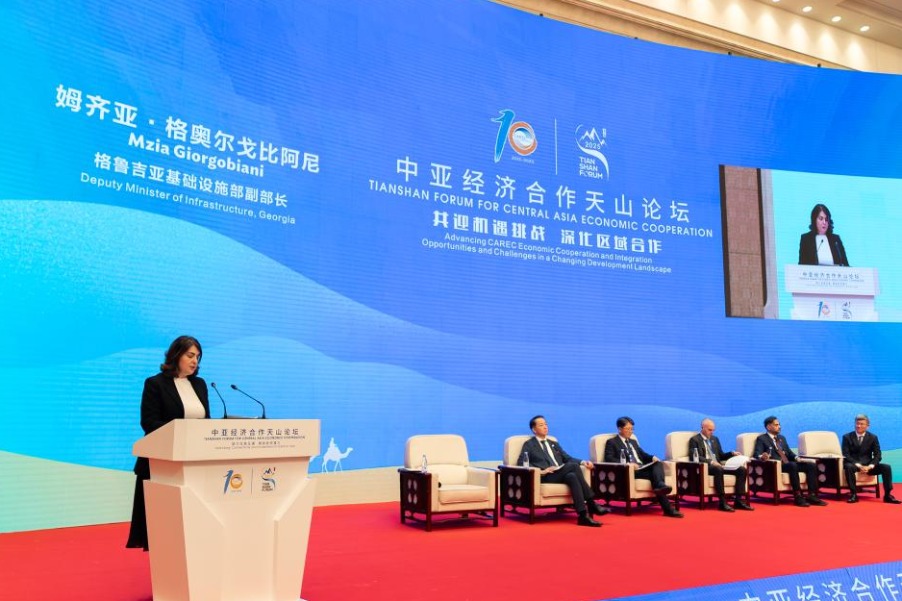Agricultural challenges to be addressed
Key document stresses need to stabilize produce prices, boost farmers' income


China will ramp up efforts to recover and stabilize the prices of agricultural products to safeguard farmers' incentives to grow grains and increase their income, agricultural officials and experts said.
Zhu Weidong, deputy head of the Office of the Central Rural Work Leading Group, said this year's No 1 central document underscored the need to address the recent challenges of falling crop prices and weakened farmers' incentives while balancing domestic production with global market dynamics.
As the first policy statement released by central authorities each year, the document is seen as an indicator of policy priorities.
Released on Sunday, it focuses on agricultural and rural development and stipulates the need to improve coordination between agricultural trade and production to stabilize grain prices, boost farmers' income and safeguard national food security.
The declining prices of key commodities such as corn, soybeans and beef over the past year have eroded agricultural profits, Zhu said on Monday at a news conference held by the State Council Information Office.
"Local authorities have rolled out relief measures to support farmers and businesses," Zhu said, adding that recent data indicated stabilizing prices and improved market confidence.
According to Qian Jingfei, a researcher at the Chinese Academy of Agricultural Sciences' Institute of Agricultural Economics and Development, China's imports of grain and key agricultural products have continued to surge in recent years, leading to depressed domestic prices and restraining the competitiveness of local industries.
Wheat and corn imports have exceeded their annual quotas for several years, while soybean imports have surpassed 100 million metric tons annually. In addition, beef has remained the second-largest imported agricultural product after soybeans. "The influx of imports has triggered steep price declines domestically," Qian said.
Last year, beef prices saw a 12-month consecutive drop, and corn prices briefly fell below 2 yuan ($0.28) per kilogram, resulting in losses for farmers and severely affecting the development of related domestic industries, she added.
To address the problem, Qian suggested enhancing agricultural productivity through technology and structural reforms, optimizing import controls to reduce reliance on single sources, and improving market information transparency to guide farmers' decisions.
She also called for enhanced monitoring of global markets, stricter quota management for grains and meat, and crackdowns on smuggling to protect local sectors.
The document stipulated that minimum purchase prices for rice and wheat will be enforced, with State-backed purchasing programs expanded in major grain-producing provinces such as Henan, Heilongjiang and Anhui.
Subsidies for corn, soybean and rice growers, as well as pilot programs for low-interest loans to grain and oilseed farmers, will be optimized, Zhu said.
The central government will reduce the financial burden on major grain-producing counties by cutting their share of agricultural insurance premiums. "Coverage for crop income and full-cost insurance will expand to shield farmers from both natural and market risks," he said.
Efforts to bridge production and consumption gaps include promoting dairy industry integration and enforcing stricter standards for pasteurized milk in order to revive domestic demand.
Local authorities should reduce losses in dairy farming by supporting localized processing and encouraging household farms to lead value-added production, Zhu said.
With sustained support, the document aims to strike a delicate balance between stabilizing prices for farmers and ensuring affordable food supplies for the country, which is the world's biggest importer of agricultural products, he added.
- Intl students showcasing global business acumen in Shanghai
- CPC expels former senior official of Guangxi
- Shanghai university unveils sustainable, efficient water treatment system
- Fire at auto business park in Jiangsu claims one life
- Magnitude 6.0 earthquake strikes Akqi county in Xinjiang
- Shenzhou XXI team to carry out first spacewalk





































